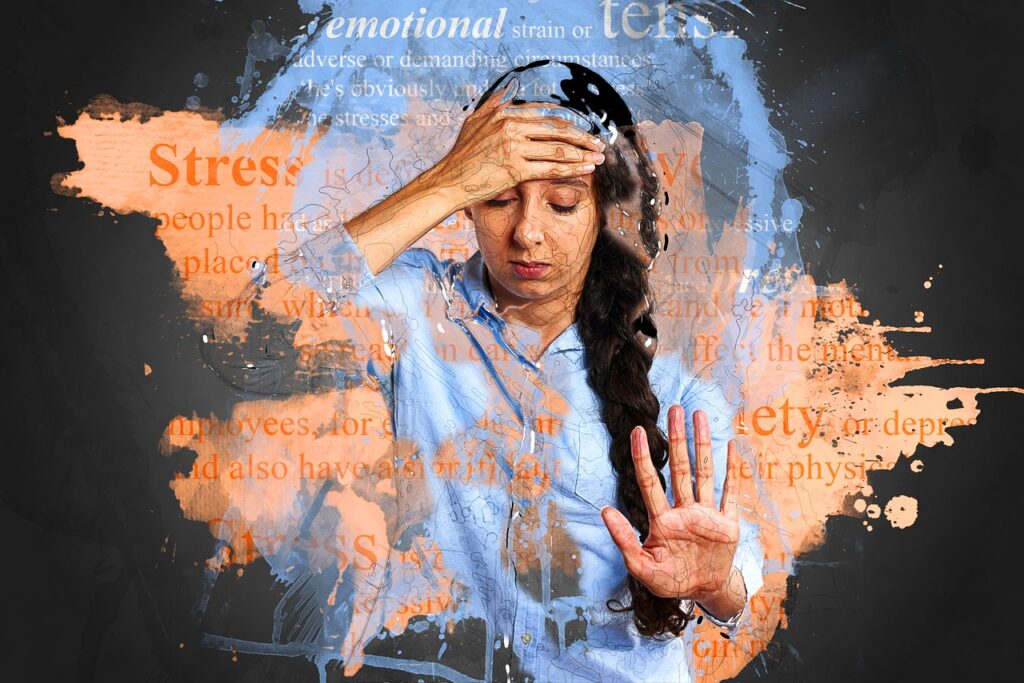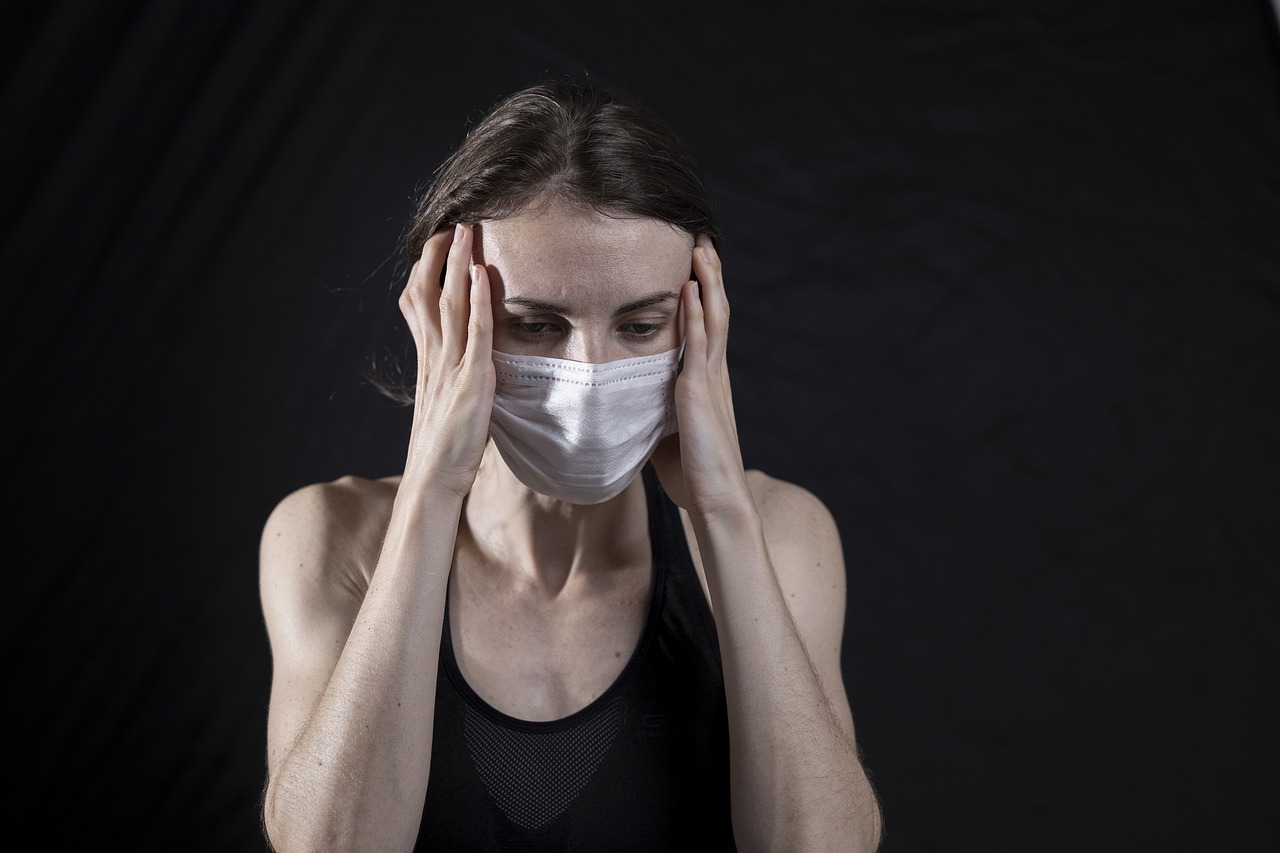Nearly half of the people with one mental health disorder also meet the criteria for another one or more mental health condition. Anxiety and depression are two mental health conditions that commonly co-exist.
Anxiety and different may have different causes, but they share some symptoms and for the most part, anxiety treatment is almost similar to the treatment plan for depression. A treatment plan for an anxiety disorder is not the same as a traditional medication plan. The treatment plan will usually include talk therapy, cognitive behavioral therapy, meditation, and mindfulness. Many people find that these strategies are enough to help them make their way through the diagnosing process without having to use medications.
In this post, we will look at the shared symptoms as well as those distinct to anxiety and depression. We will also explore the treatment options for both conditions
Symptoms of Anxiety
While anxiety is a perfectly normal emotion, chronic anxiety is not and it can greatly interfere with daily life. This kind leads to constant and overwhelming irrational fears and thoughts, and is accompanied by among others, the following symptoms
- Restlessness and feeling always on edge
- A sense of dread that won’t go away
- Overwhelming sense of panic
- Rumination, that is, obsessively thinking about a problem and not being able to stop
- Shortness of breath
- Sleep problems
- Heart palpitations’
- Dry mouth
- Hyperventilation
- Dizziness
- Muscle tension
- Difficulty concentrating
- An intense obsession to avoid anxiety triggers
It is important to note that there are several types of anxiety disorders. A specific and accurate diagnosis is the first step to getting anxiety treatment. There are signs and symptoms specific to each type that a mental health professional will assess during the diagnosis.

Symptoms Of Depression
Depression is more than “feeling blue” or finding yourself sad most times. It is, after all, quite normal to feel down every now and then. Depression is classed as a mood disorder, marked by feelings of sadness, hopelessness and sadness that interfere with everyday life. You may have depression if these feelings of sadness linger for days or even weeks on end.
This mood disorder affects more than just the mood. Depression can affect the body and cause any one or more of several physical symptoms. Here is a look at the physical, behavioral and emotional symptoms of depression
- Hopelessness and feeling pessimistic
- Restlessness and irritability
- Overwhelming feelings of sadness and emptiness
- Sleep problems
- Decreased energy, feeling sluggish and chronic fatigue
- Difficulty concentrating
- Body aches and pain with no specific cause
- Gastrointestinal problems with no specific cause
- Changes in appetite, affecting weight
- No interest or pleasure in hobbies and other activities
- Feeling unworthy
- Thoughts of death and suicide, and even going ahead with the suicide attempts
Depression and Anxiety Treatment
Both anxiety and treatment can significantly reduce your quality of life. The mental conditions can take a toll on both your physical and mental health, which is why you should get professional help as soon as possible.
You can always start with a self-test to know whether to see a professional. There are some online self-diagnosis tests that can help you. Again, you know yourself better. If you notice something that feels a little off, physically, or emotionally, then that may be what should inform you to see a professional. In the end, there is no substitute for a diagnosis by a professional, after which you will get depression and anxiety treatment recommendations.
Your Options
As outlined, anxiety and depression are two different conditions, which may co-exist, but that’s not always the case. That being said, the two conditions share some of the same treatments as follows
1. Psychotherapy
There are different types of therapies available to persons dealing with anxiety, depression or both. Talk therapy or psychotherapy includes cognitive behavioral therapy (CBT) which is meant to help you learn how to adjust your behavior and thoughts to be more rational. You can benefit from both one-on-one as well as group therapy sessions.
2. Medication
There are several medications available for anxiety treatment, depression treatment or both. It may take one medication to treat both conditions as they often overlap.
The most commonly prescribed medications are
3. Antidepressants
There are several classes of antidepressants available, each with its own working mechanism and benefits. Among these include serotonin-norepinephrine re-uptake inhibitors (SNRIs) tricyclic antidepressants (TCAs,) nonadrenaline and specific serotonergic antidepressants (NASSAs) and selective serotonin reuptake inhibitors (SSRIs)
Antidepressants work by affecting brain chemicals or neurotransmitters that are associated with depression. These are namely serotonin, dopamine and norepinephrine. The various classes of antidepressants affects these brain chemicals differently.
4. Antianxiety Medication
While antianxiety medication is meant for anxiety treatment, they can also help with easing and managing depression symptoms. These medications will not cure anxiety, but they provide the relief you need from the various symptoms, allowing you to not only function better, but to feel better in your day-to-day life.
There are several antianxiety medications available. Benzodiazepines calm the mind and body and are used for the treatment of several types of anxiety disorders. The most commonly known of Benzodiazepines are Xanax and Valium. Buspirone is another anxiety treatment drug prescribed for both short-term and chronic anxiety. Doctors may also prescribe beta-blockers, for the off-label managing of anxiety symptoms.
5. Mood Stabilizers
Both anxiety and depression have a profound impact on mood. If your antidepressants and/or antianxiety medication don’t work by themselves to improve your mood, your doctor may also prescribe mood stabilizers.
Your specific symptoms and their severity, other health conditions possible interactions with other medications and possible side effects are among the key factors your doctor will consider when prescribing medication for depression and anxiety treatment.
Combined Treatments for Best Results
Psychotherapy and medication on their own produce great results. Combined, the two are even more highly effective for depression and anxiety treatment.
There are also so many self-help strategies that you can explore including regular exercise, eating a healthy diet, getting enough quality sleep every night and avoiding common depressants such as alcohol.
Your doctor will monitor your progress and adjust your treatment plan accordingly. Improvement of anxiety and depression can take some time. You may be able to see results after a number of psychotherapy sessions and a few weeks of properly taking your medication.
Bottom Line
Both depression and anxiety are real conditions affecting so many. You, however, don’t need to live with the symptoms of the conditions. Seek professional help and you can look forward to long-term results.














